(December 4, 2022) “India is a part of me and I carry it with me wherever I go,” Google and Alphabet CEO Sundar Pichai said after receiving the Padma Bhushan award from the Indian envoy to the US. The Indian-origin CEO is among the 17 others who have been bestowed with India’s third-highest civilian award. "I am deeply grateful to the Indian government and the people of India for this immense honour. It is incredibly meaningful to be honoured in this way by the country that shaped me," added the 50-year-old while accepting the award from Taranjit Singh Sandhu. [caption id="attachment_32421" align="aligncenter" width="979"] Sundar Pichai received Padma Bhushan award[/caption] The CEO of tech giant Google and its parent company Alphabet Inc hardly needs any introduction. In the last 18 years with the Google, Sundar has contributed immensely to the trade and industry sector, thus making his mark. Interestingly, the email service provided by Google, Gmail, was launched on the very day Pichai joined the company – April 1, 2004. Unaware of this new product, he admitted his ignorance in the job interview of the organisation. Luckily for Pichai, that moment of uncertainty got viewed as one of the qualities that
by Google, Gmail, was launched on the very day Pichai joined the company – April 1, 2004. Unaware of this new product, he admitted his ignorance in the job interview of the organisation. Luckily for Pichai, that moment of uncertainty got viewed as one of the qualities that Laszlo Bock, Google’s former senior VP of people operations was looking for in a candidate. Bock remembers Sundar Pichai as the candidate with "intellectual humility”. Today, Pichai’s meteoric rise from humble beginnings to a top CEO is a success story that people cherish globally.
[caption id="attachment_26171" align="aligncenter" width="991"]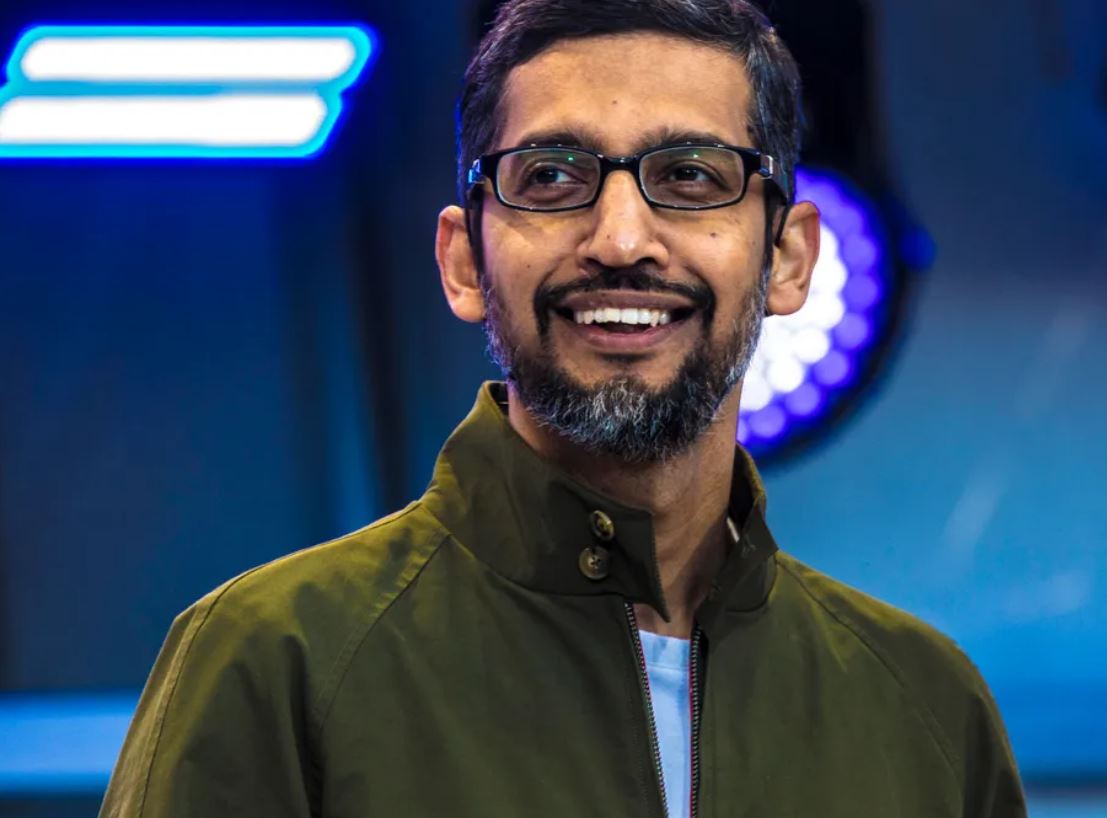 Sundar Pichai, Google's CEO[/caption]
Sundar Pichai, Google's CEO[/caption]
The first non-white CEO of Google also serves on Alphabet’s Board of Directors. He has been focused on developing products and services with the vision to be of value in all big and little moments of people’s lives.
Talking at Google’s flagship I/O Developers Conference 2022, Pichai informed:
“Throughout the pandemic, Google has focused on delivering accurate information to help people stay healthy. Over the last year, people used Google Search and Maps to find where they could get a COVID vaccine nearly two billion times!”
His zeal for leadership with purpose got recognised in India in the form of Padma Bhushan award 2022. Global Indian turns its spotlight on the journey of the man who inspires millions.
The academic flight
Ironically, the CEO of American multinational technology company has not studied computer science, rather metallurgical engineering from IIT Kharagpur. Coincidentally, he has also studied inside the campus of IIT Chennai. His school, Vana Vani happened to be located inside the sprawling Chennai campus.
[caption id="attachment_26157" align="aligncenter" width="984"]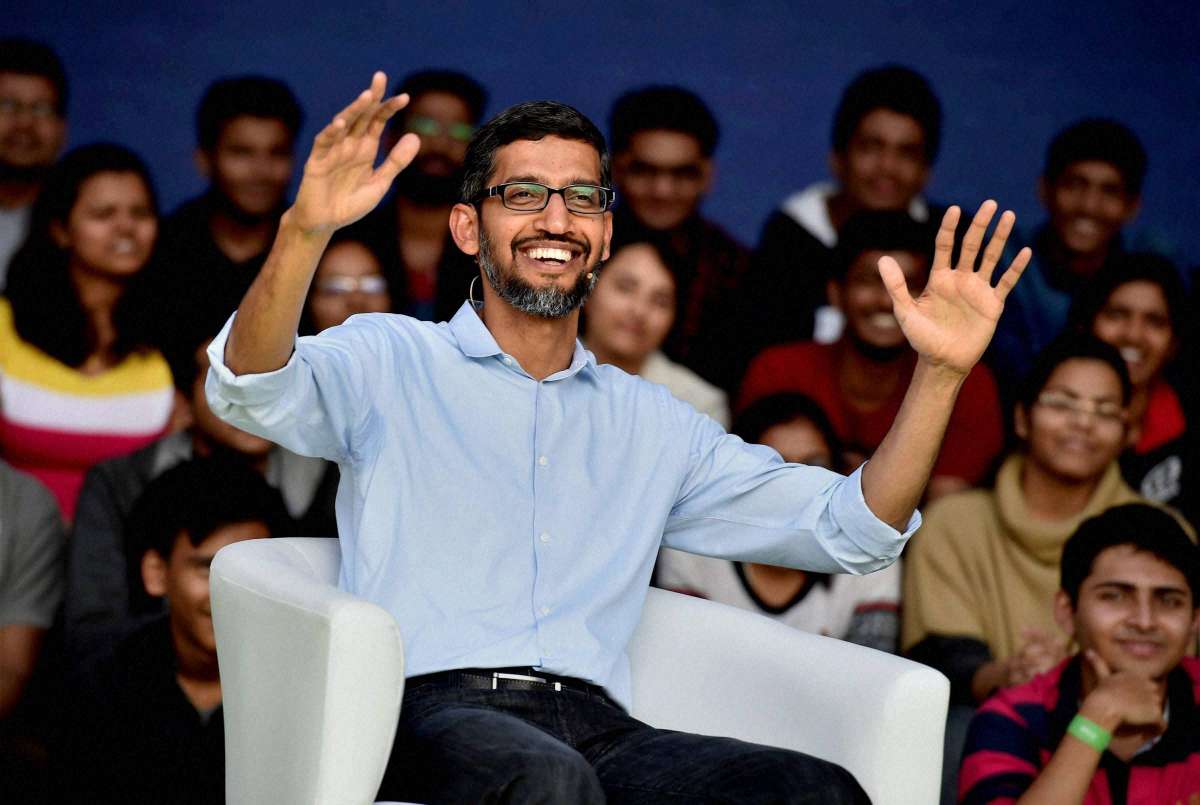 Sundar Pichai interacting with IIT Kharagpur students in one of his India visits.[/caption]
Sundar Pichai interacting with IIT Kharagpur students in one of his India visits.[/caption]
Born in 1972, he was raised in a middle-class household by an electrical engineer father who worked at General Electric Company (GEC) and a stenographer mother. Interested in the world of engineering, he was keen to explore the field, and he did so when he enrolled in the IIT Kharagpur. The passion for material sciences and engineering later took to Stanford University for a master's degree and then to Wharton School of the University of Pennsylvania for an MBA. But making that first trip to the US wasn't that easy for someone who came from a humble background. His father had to spend a year’s salary to buy a plane ticket for him to go to the US for his studies. That was Sundar's first flight journey. The sincere student did not let his parents down and got recognised in his foreign academic institutions as one of the best in the batch.
Foundation of the effervescent leader
Before his association with Google, Pichai worked at Allied Materials and McKinsey & Co. Though both the organisations specialised in metallurgy, the stints groomed him well. He picked up the nuances of product strategy, execution, and team building that eventually set the foundation for his pivotal beginnings at Google. Pichai nurtured his career by aligning it to Google’s success.
“We try to work on things that billions of people will use every day”
No wonder Google is part of everyday conversations and happens to be a significant part of the vocabulary of kids and adults alike across the world!
[caption id="attachment_26172" align="aligncenter" width="817"]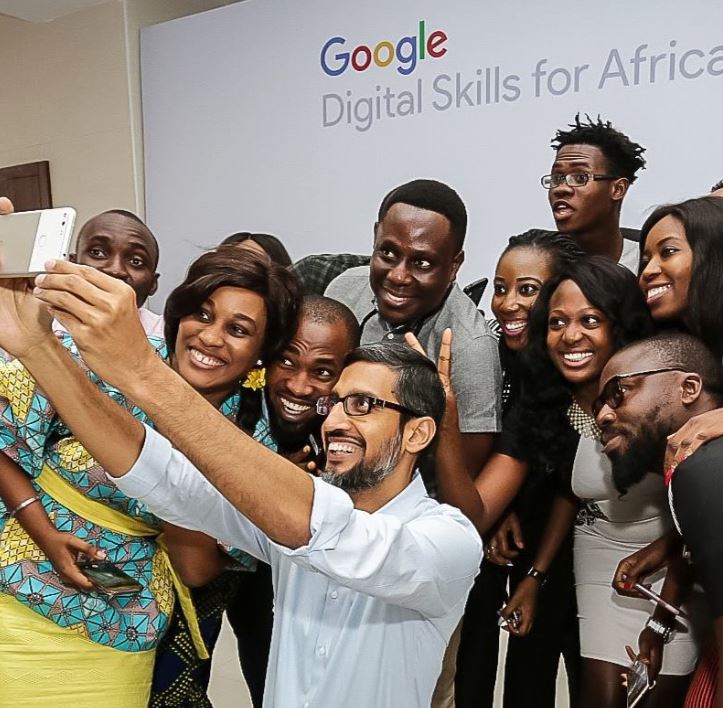 Sundar Pichai with Nigerian Google team during his visit to Africa[/caption]
Sundar Pichai with Nigerian Google team during his visit to Africa[/caption]
It has established itself as the organisation that cares with breakthroughs like use of machine learning (ML) to make web images more accessible to people who have vision problems. It generates real-time captions for online videos to help those who struggle with hearing.
Rise and rise of Google under Pichai’s leadership
Sundar Pichai joined Google as its vice-president of product management. He was entrusted with the responsibility of development of Google Toolbar and Google Chrome. These went on to become the world’s most popular internet browser. Undoubtedly, with these quantum leaps, Sundar Pichai climbed the hierarchical ladder. He launched Chrome OS and Chromebook in 2011 and went on to launch Android operating system in 2013. By 2014, the super talented Indian-origin professional was leading all products and engineering divisions at Google, overseeing vital platforms like Search, Gmail, Chrome, Play, Android, Maps, and Google Workspace.
[caption id="attachment_26158" align="aligncenter" width="884"]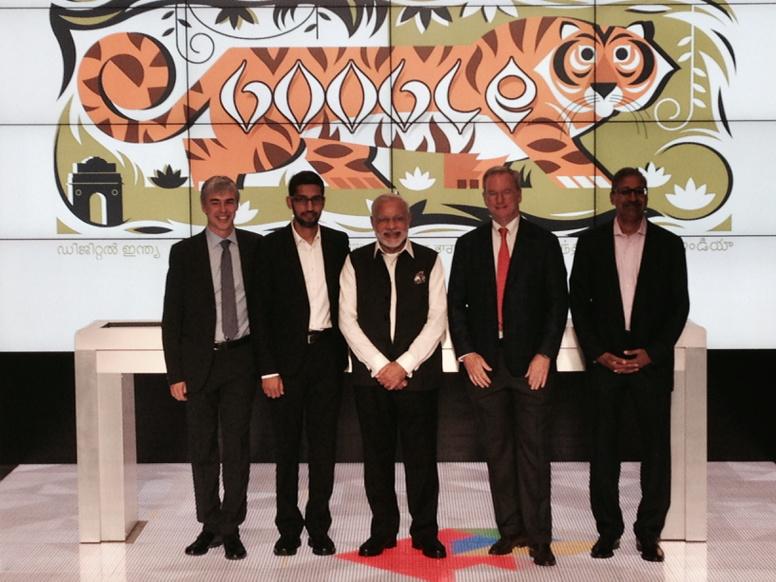 From Left to right : Larry Page (Google's co-founder), Sundar Pichai (Google's CEO), Narendra Modi (India's PM), Eric Schmidt (Google's former CEO), and Ram Shriram (American businessman)[/caption]
From Left to right : Larry Page (Google's co-founder), Sundar Pichai (Google's CEO), Narendra Modi (India's PM), Eric Schmidt (Google's former CEO), and Ram Shriram (American businessman)[/caption]
When Google reorganised into Alphabet in August 2015, Sundar Pichai got selected as its CEO. In December 2019, he became the CEO of both Google and Alphabet, replacing founder Larry Page. In 2021, under Pichai’s leadership, Alphabet crossed $2 trillion in market value due to sales and profit growth during the COVID-19 pandemic.
Building impact with powerful breakthroughs
Bringing the world together through different platforms, and giving unique experiences to people has always been the core of what Sundar Pichai and his team thrive upon.
While talking about war drift Ukrainians at Google I/O Developers Conference 2022, he remarked:
“In countries around the world, Google Translate has been a crucial tool for newcomers and residents trying to communicate with one another. We’re proud of how it’s helping Ukrainians find a bit of hope and connection (in countries where they have taken refuge) until they are able to return home again.”
While many other technology giants embrace the metaverse as the next frontier of growth, Sundar Pichai sees Google’s future in its oldest offering - the Internet search. He foresees people asking computers more questions with voice and multimodal experiences.
From overseeing new investments like acquisition of YouTube and launching of Google Cloud, Pichai leads the organisation by advancing AI, digital technology, machine learning and quantum computing.
https://youtube.com/watch?v=NJ-juLXoFxM&list=PLjq6DwYksrzyHa9RtflCUniCMTFG4twFD
"AI can make humans more productive than we ever imagined," he remarked in the conference stressing that it can play a foundational role in every aspect of people’s lives, right from healthcare, education, manufacturing to how people consume information. Emphasizing on the significance of ML he said, “When machines would be programmed to simulate human mind, mimic human activity and solve problems, it will have a bigger impact than most of the breakthroughs in recent history."
Matters close to heart…
Keeping India close to his heart, Pichai has led Google to invest in the foundational infrastructure of the country by developing technology specific to its needs. Google Pay app is one such example. “India will be a global player in the digital economy,” he concluded in an interview.
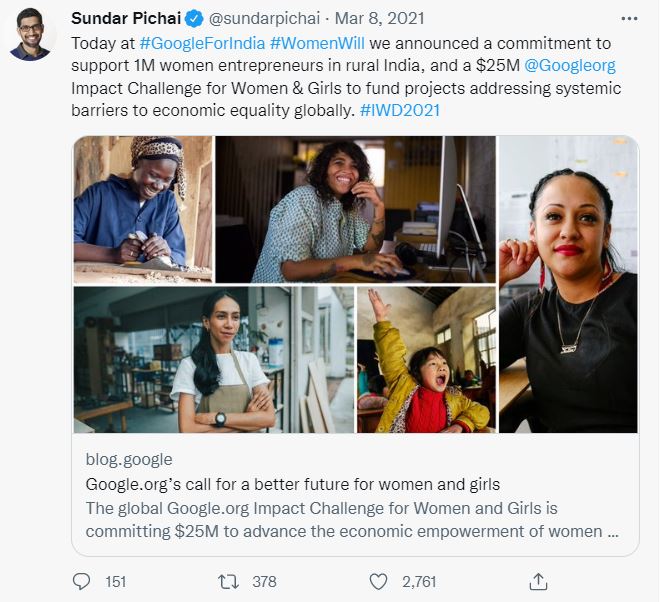
In a statement, the California-headquartered company has mentioned that it will invest ₹109 crore to support healthcare facilities and a further ₹3.6 crore to upskill frontline workers in India. The tech giant has entered into a tie-up with NGOs like GiveIndia, ARMMAN, PATH and Apollo Medskills to fulfill these commitments.
In the last five years, Google has granted funds to the tune of $57 million to India. Out of this $18 million was part of Covid 19 response. In April 2020, Pichai made personal contribution of ₹5 crore to GiveIndia so that the country can fight the first wave of pandemic.
Love and life
Keeping his private life pretty private, Pichai stays with his wife Anjali who happens to be his heartthrob and classmate from IIT Kharagpur, son Kiran and daughter Kavya in California. The cricket buff is a Sachin Tendulkar fan. The love for the game comes from childhood aspiration to be a cricketer. As a high school student, he was the captain of the school cricket team, displaying his leadership skills on the field.
[caption id="attachment_26161" align="aligncenter" width="849"]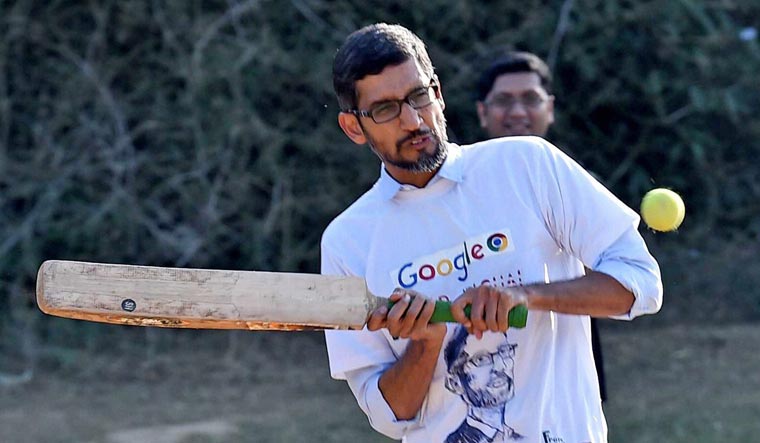 Sundar Pichai trying his hands at cricket[/caption]
Sundar Pichai trying his hands at cricket[/caption]
Pichai’s love for sports does not end at cricket. He is also an ardent fan of FC Barcelona – the football club and seldom misses to watch it’s match when its competing on field.
The top CEO recently admitted in one of the interviews of the Wall Street Journal that he is not very good at meditation. Instead, he prefers NSDR (non-sleep deep rest), listening to podcasts or taking his dog for a walk.
Do you know how Sundar Pichai connects people?
- Google’s flood forecasting technology sent flood alerts to 23 million people in India and Bangladesh in 2021 helping in timely evacuation of hundreds of thousands of people.
- Around the world, Google Maps has mapped around 1.6 billion buildings and over 60 million kilometers of roads to date with the vision to keep everyone within the reach, and make the world a well-connected chain of individuals.
- The number of buildings on Google Maps in Africa has increased by 5X. Google has made a dataset of these buildings publicly available so that international organizations like the United Nations and the World Bank can use it to better understand population density and to provide support and emergency assistance.
- Google Translate broke down language barriers by recently adding 24 languages which together are spoken by 300 million people, bringing them closer to communities across the globe.
- Google has been building augmented reality into many products like Google Lens to provide more interactive experiences and prevent technology from coming in the way of the real-world environment.
- Follow Sundar Pichai on Twitter and Instagram
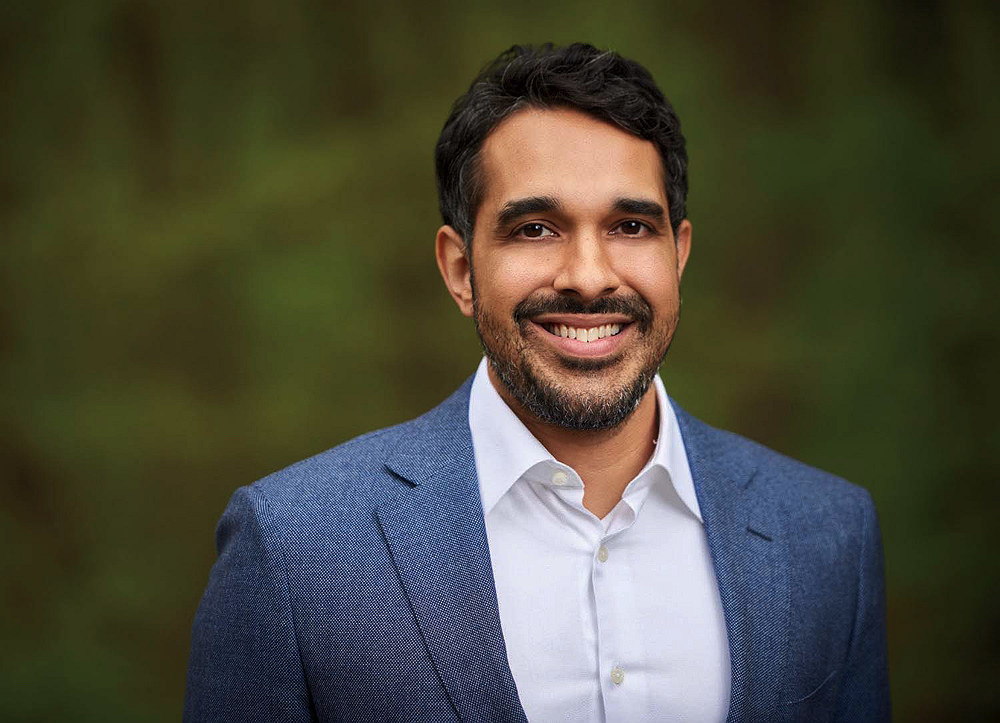
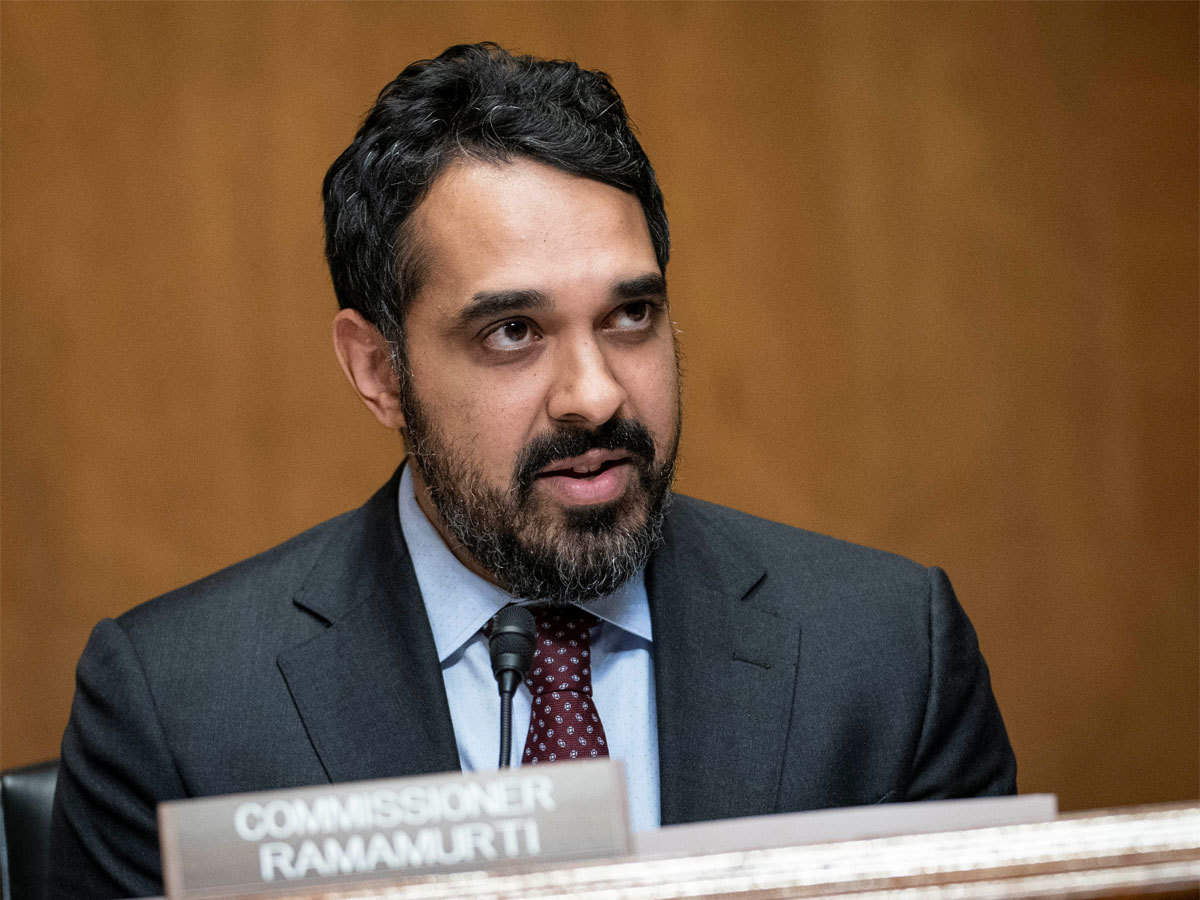
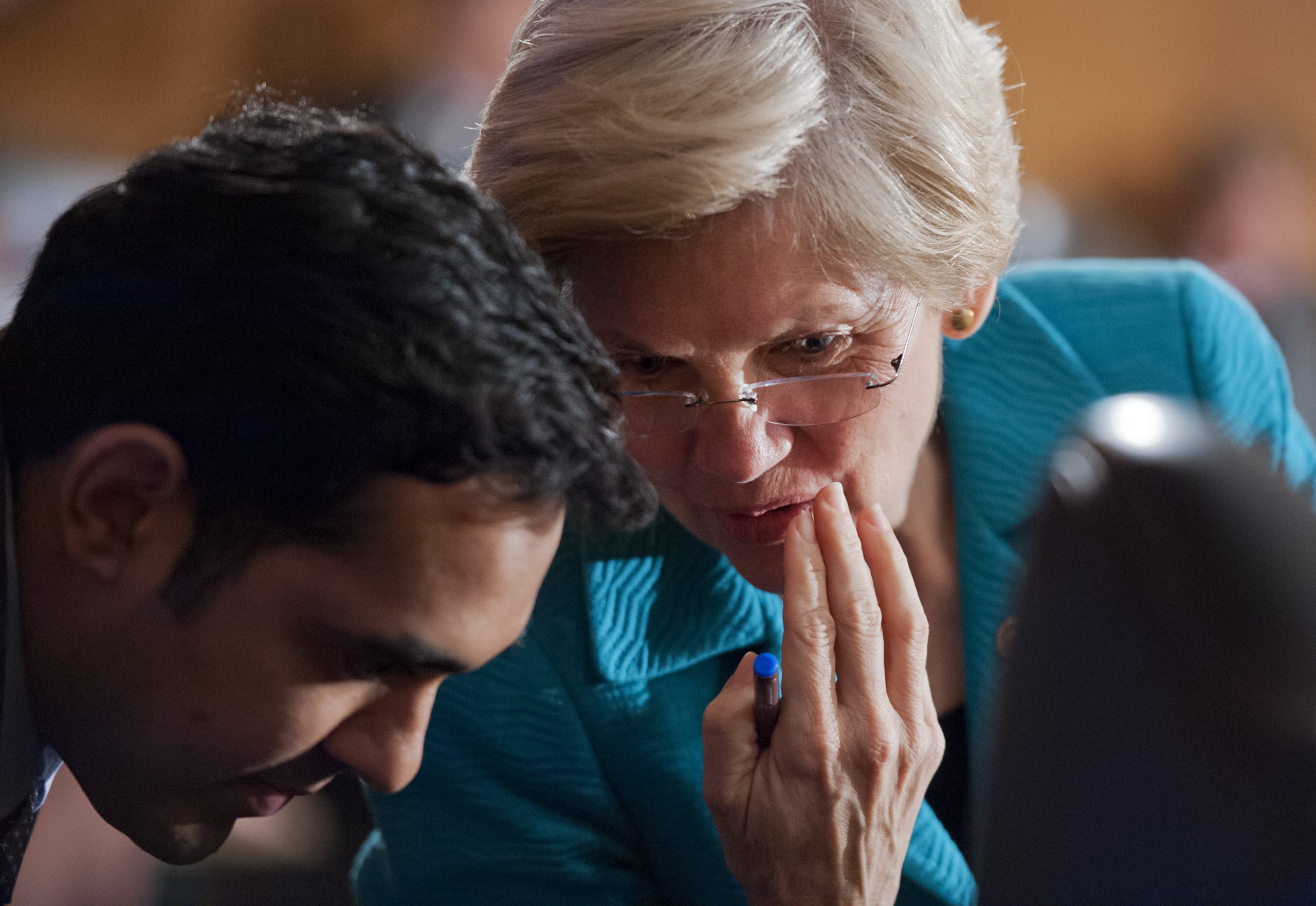

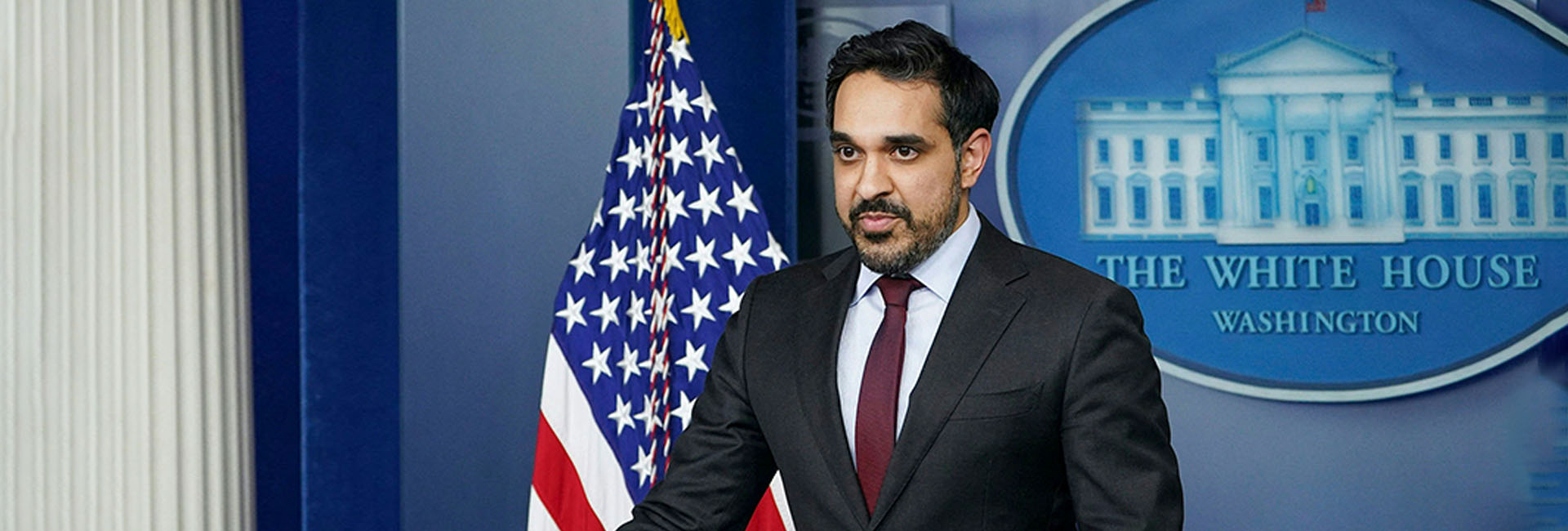
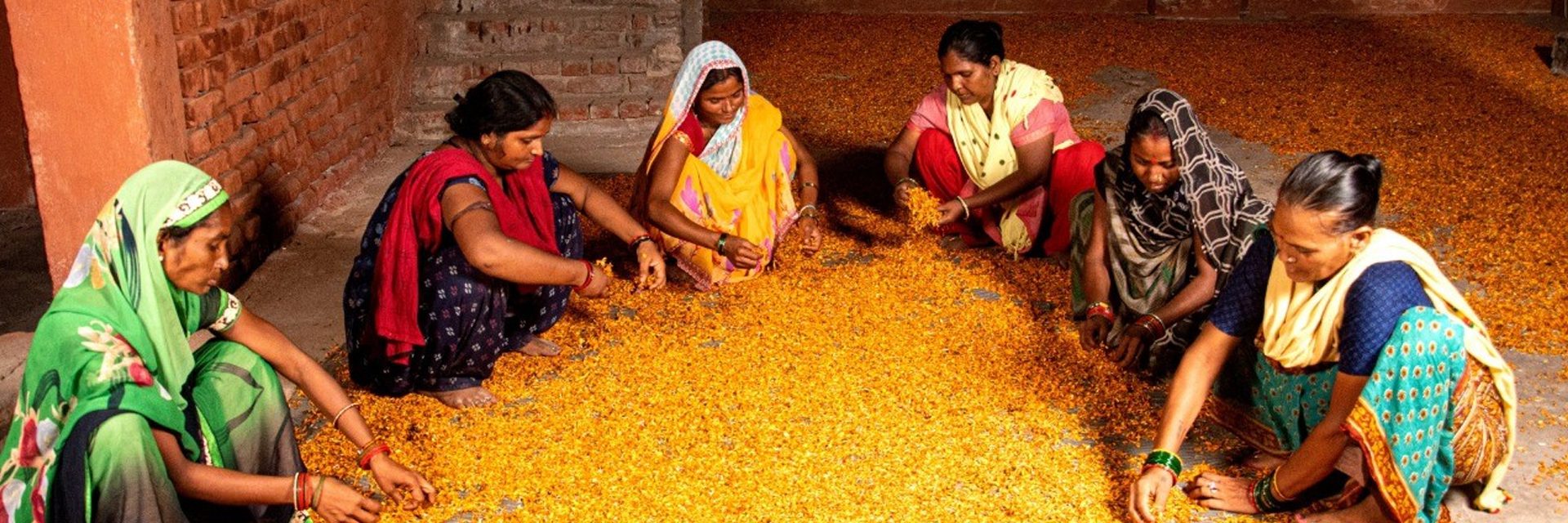
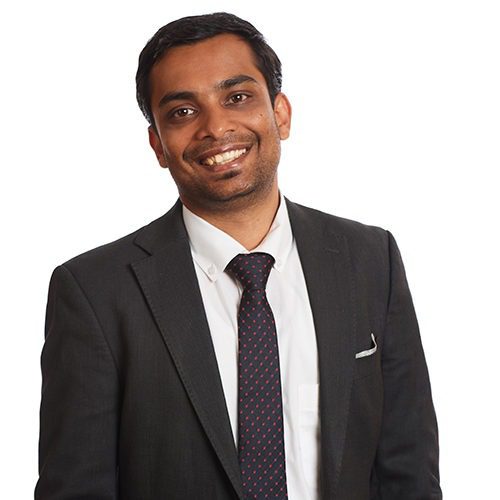 Ankit Agarwal, Founder, HelpUsGreen[/caption]
Ankit Agarwal, Founder, HelpUsGreen[/caption]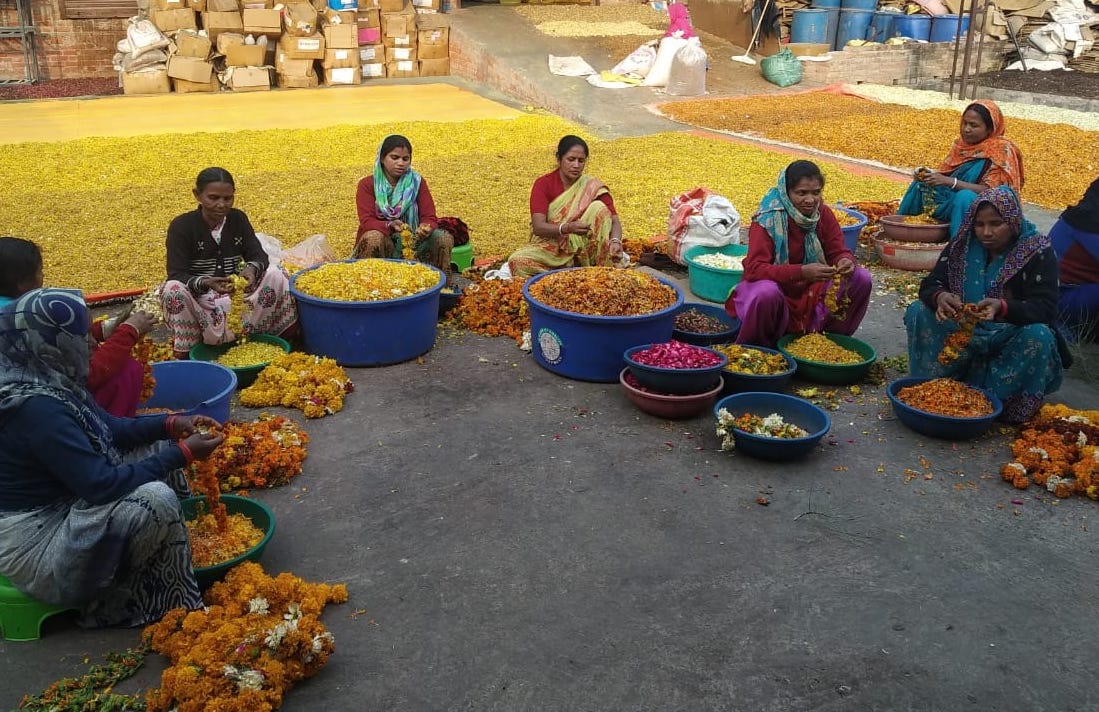 Flower recycling creates livelihoods[/caption]
Flower recycling creates livelihoods[/caption]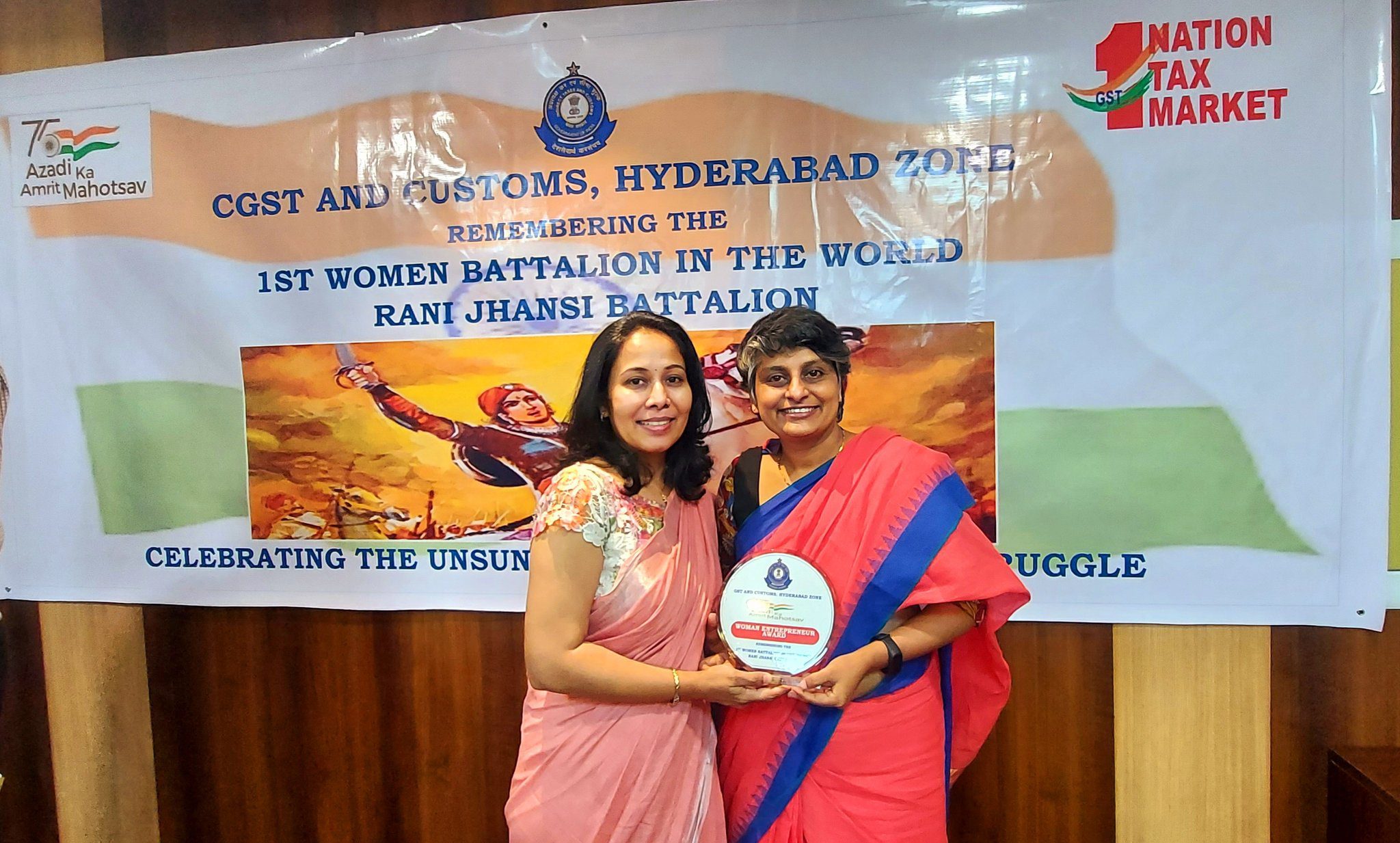 Maya Vivek and Minal Dalmia, Founders, HolyWaste[/caption]
Maya Vivek and Minal Dalmia, Founders, HolyWaste[/caption]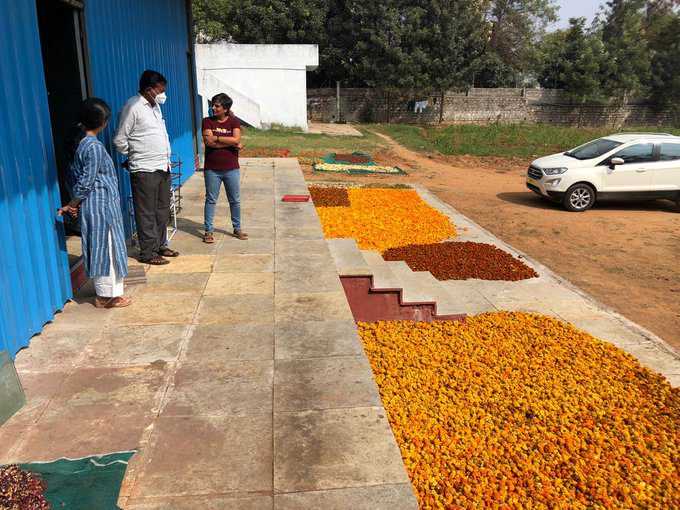 Making waste beautiful[/caption]
Making waste beautiful[/caption]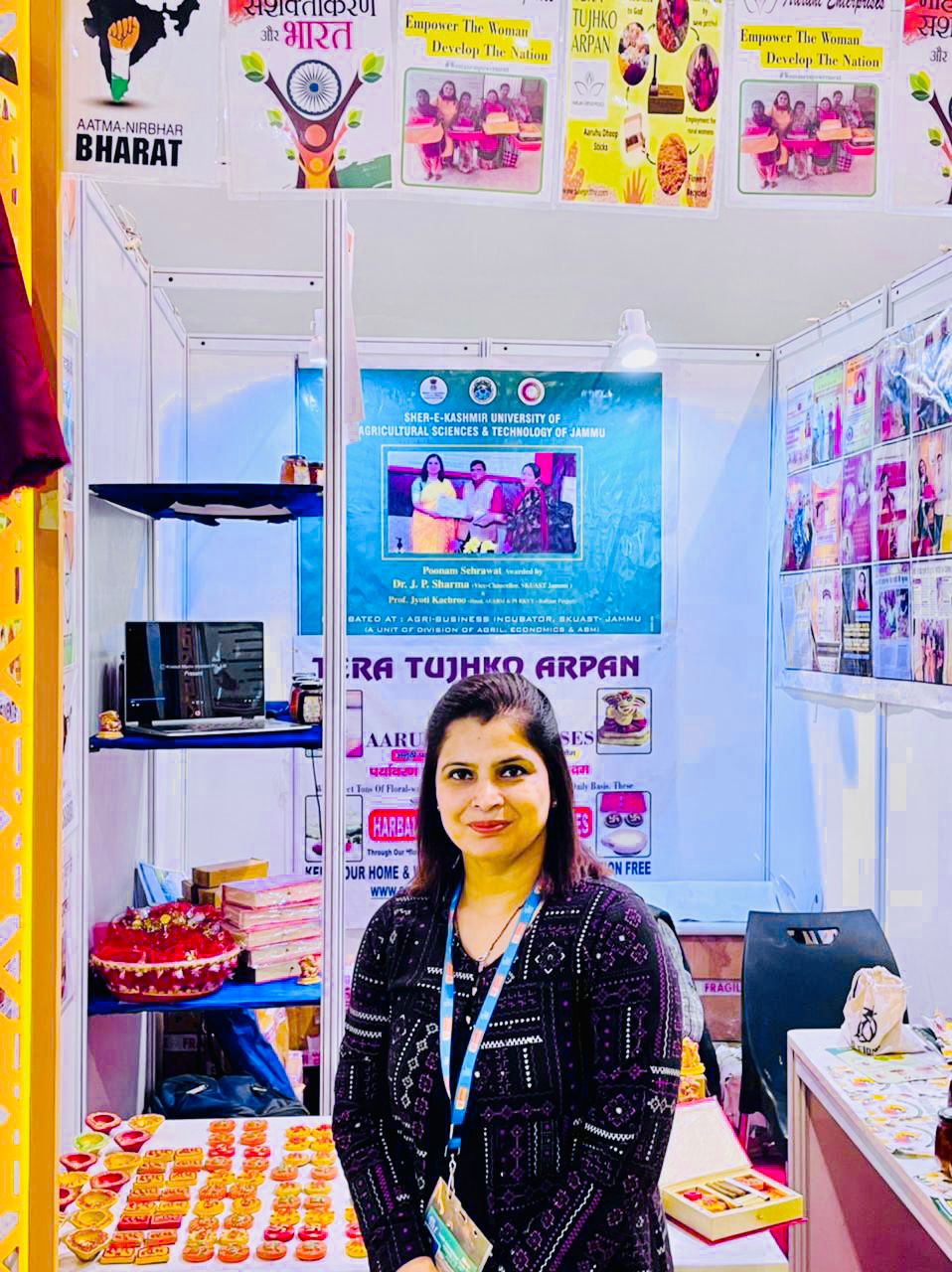 Poonam Sherawat, Founder, Aaruhi Enterprises[/caption]
Poonam Sherawat, Founder, Aaruhi Enterprises[/caption]
 Sundar Pichai, Google's CEO[/caption]
Sundar Pichai, Google's CEO[/caption] Sundar Pichai interacting with IIT Kharagpur students in one of his India visits.[/caption]
Sundar Pichai interacting with IIT Kharagpur students in one of his India visits.[/caption] Sundar Pichai with Nigerian Google team during his visit to Africa[/caption]
Sundar Pichai with Nigerian Google team during his visit to Africa[/caption] From Left to right : Larry Page (Google's co-founder), Sundar Pichai (Google's CEO), Narendra Modi (India's PM), Eric Schmidt (Google's former CEO), and Ram Shriram (American businessman)[/caption]
From Left to right : Larry Page (Google's co-founder), Sundar Pichai (Google's CEO), Narendra Modi (India's PM), Eric Schmidt (Google's former CEO), and Ram Shriram (American businessman)[/caption]
 Sundar Pichai trying his hands at cricket[/caption]
Sundar Pichai trying his hands at cricket[/caption]
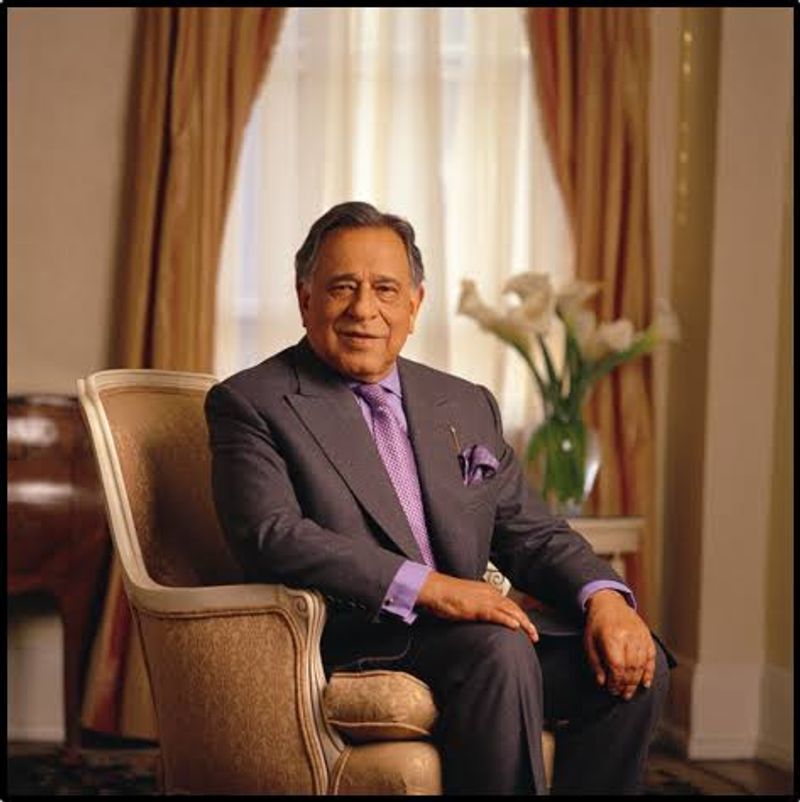 Prithvi Raj Singh 'Biki' Oberoi[/caption]
Prithvi Raj Singh 'Biki' Oberoi[/caption]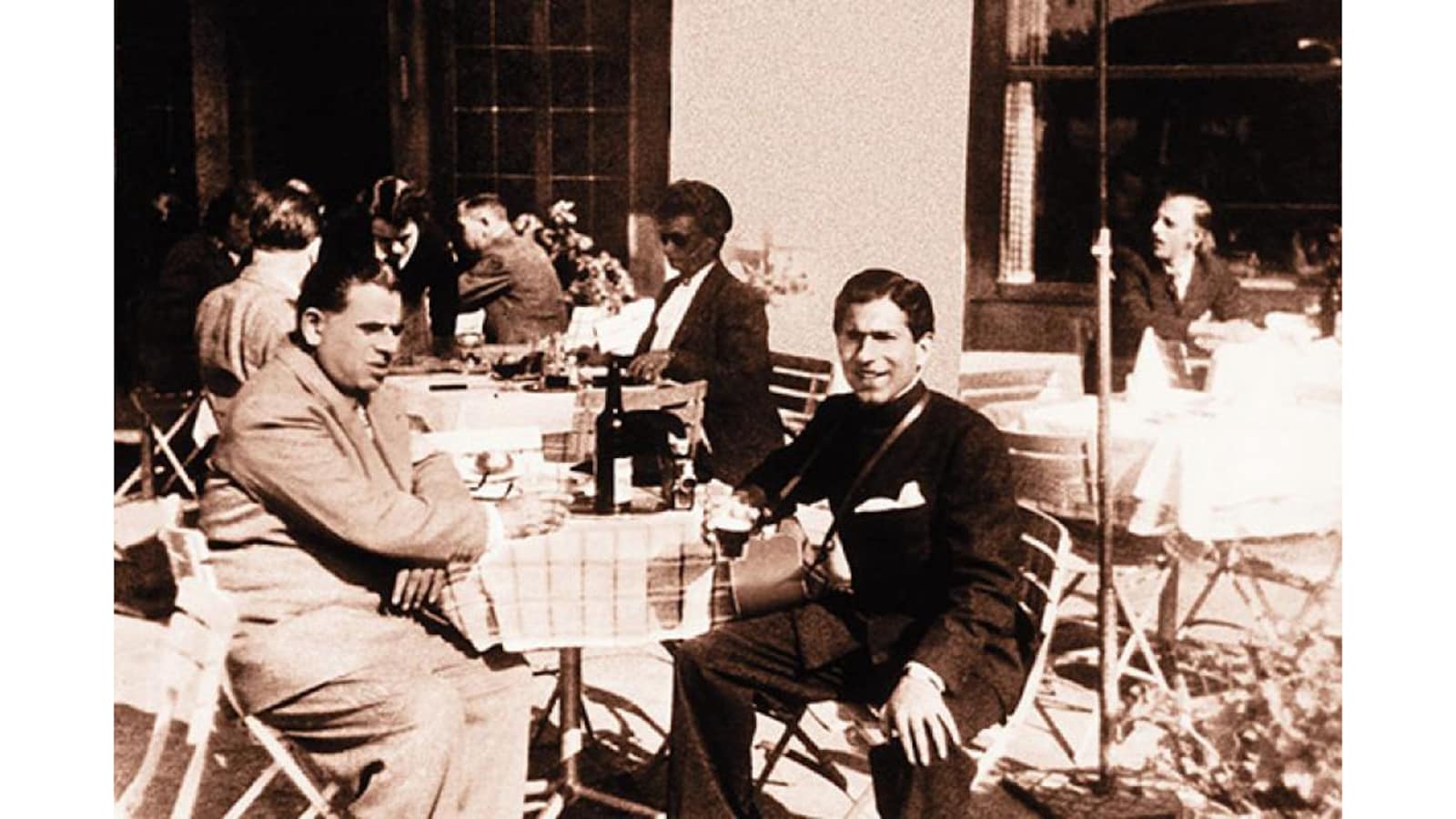 Rai Bahadur Singh Oberoi and his son Prithvi Raj Singh Oberoi[/caption]
Rai Bahadur Singh Oberoi and his son Prithvi Raj Singh Oberoi[/caption] The Oberoi-Trident[/caption]
The Oberoi-Trident[/caption]
 Vrinda Chadha[/caption]
Vrinda Chadha[/caption] Vrinda Chadha with her guru Padma Shri Ranjana Gauhar[/caption]
Vrinda Chadha with her guru Padma Shri Ranjana Gauhar[/caption] Vrinda Chadha[/caption]
Vrinda Chadha[/caption]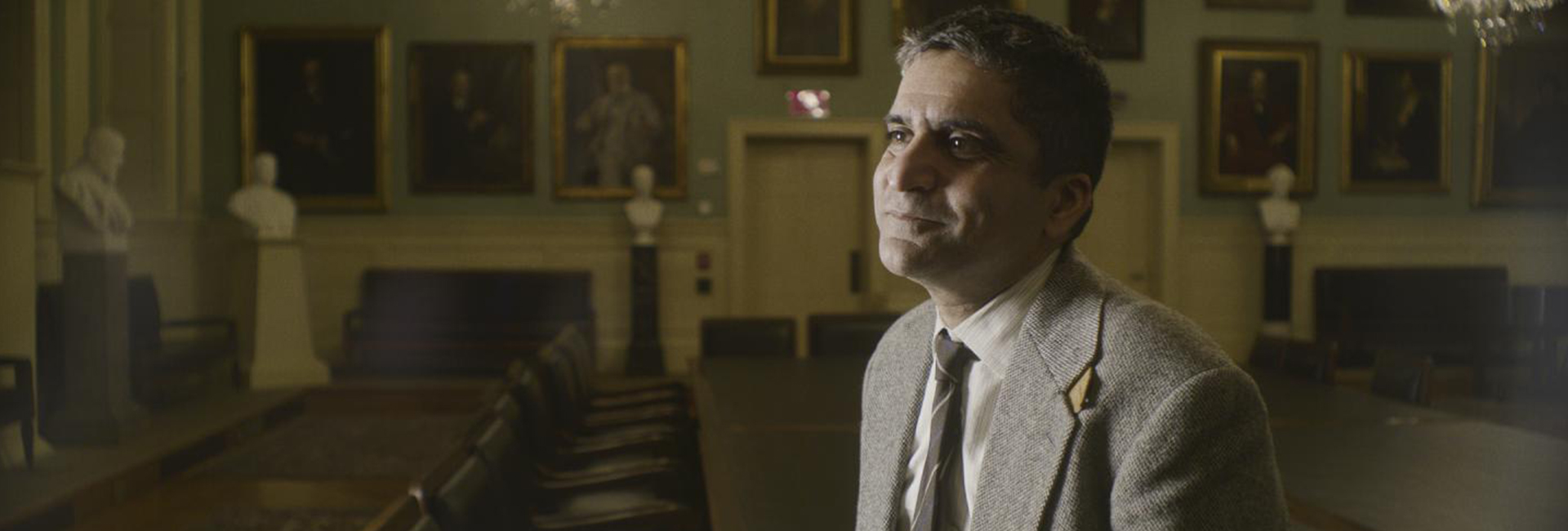
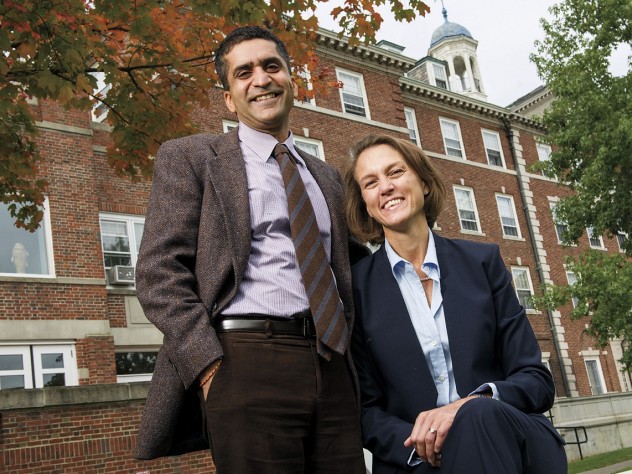 Rakesh and Stephanie Khurana at Cabot House[/caption]
Rakesh and Stephanie Khurana at Cabot House[/caption]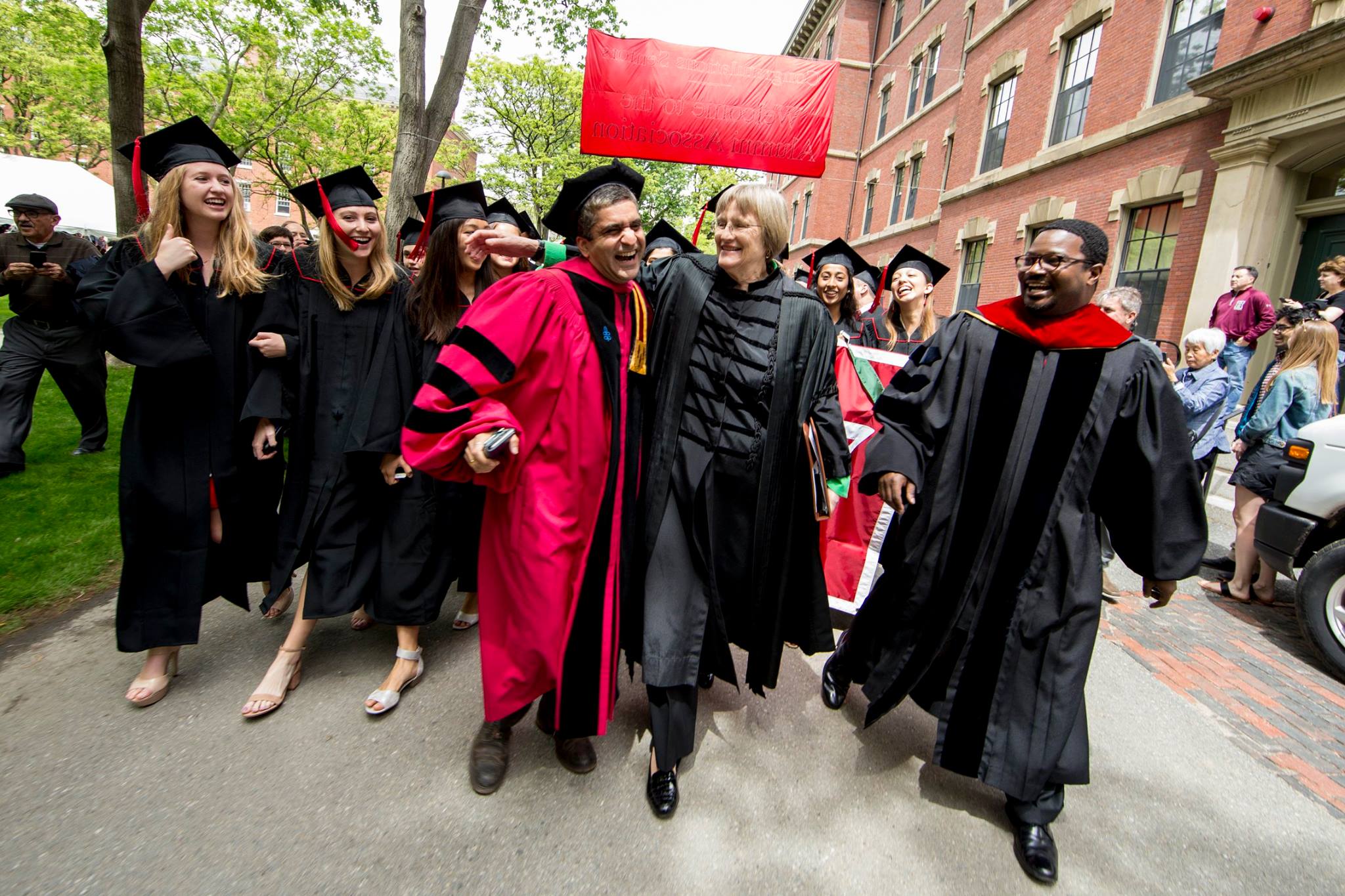 Harvard University President Drew Faust greets Dean Rakesh Khurana at a recent graduation ceremony[/caption]
Harvard University President Drew Faust greets Dean Rakesh Khurana at a recent graduation ceremony[/caption]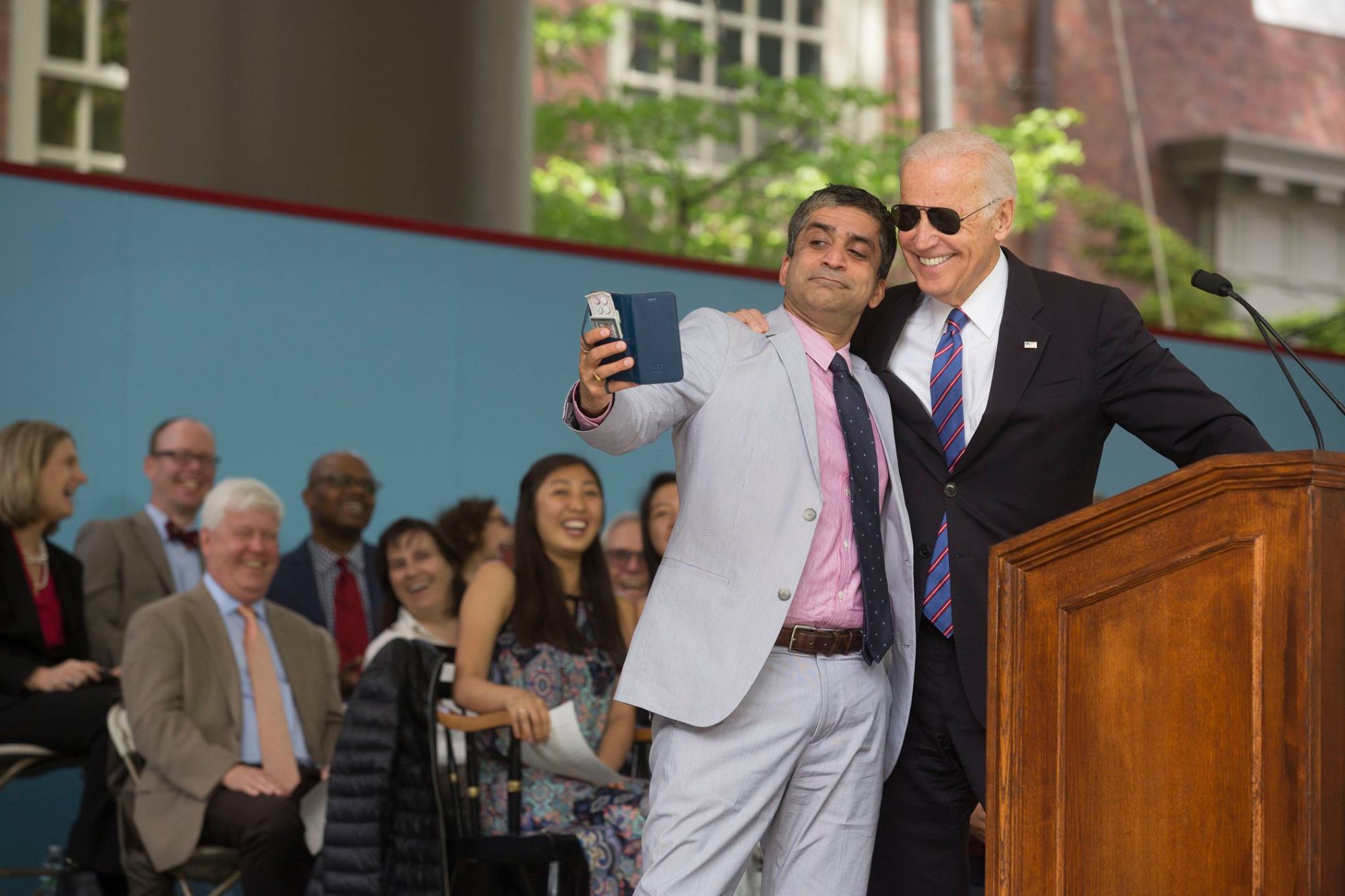 Dean Khurana with President Joe Biden[/caption]
Dean Khurana with President Joe Biden[/caption]